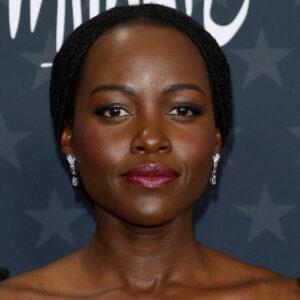Lupita Nyong’o has signed with WME, because eventually even the most decorated talent on the planet needs someone to manage the gravitational pull of their own career orbit.
The Oscar winner, best-selling author, podcast host, and face of Afrofuturist excellence is trading up on the rep front—and not because she had to, but because this stage of the game calls for boardroom heavyweights, not just publicists with taste. She’ll continue to be repped by ID PR, but now with WME on deck, we’re officially in strategic expansion territory.
And Lupita’s résumé? It’s less “career” and more “galaxy.” She debuted by sweeping award season with 12 Years a Slave like it was a team-building exercise. Then came Black Panther, where she became the emotional anchor of a global juggernaut. Then Us, where she played both victim and villain and made it look like a TED Talk on duality. And this summer, she’s adding “Shakespearean lead” to her already-unfair résumé—playing Viola in Twelfth Night for Shakespeare in the Park, opposite Peter Dinklage and Sandra Oh, like it’s no big deal.
In animation? She voiced the lead in The Wild Robot, a critical and box office hit that turned hardware-season into a formality. In horror? She led A Quiet Place: Day One to the biggest debut in franchise history. In publishing? She wrote Sulwe, then voiced it for Netflix, then won a Daytime Emmy. And because global dominance can be lonely, she started Mind Your Own, a podcast about African identity, belonging, and, frankly, perspective.
WME doesn’t sign talent like Lupita to “build a career.” They sign them to manage scale. To navigate the kind of cross-medium, cross-genre, cross-continent legacy building that doesn’t require reinvention—just orchestration. Because at this point, Lupita Nyong’o isn’t taking the next step. She is the next step.



